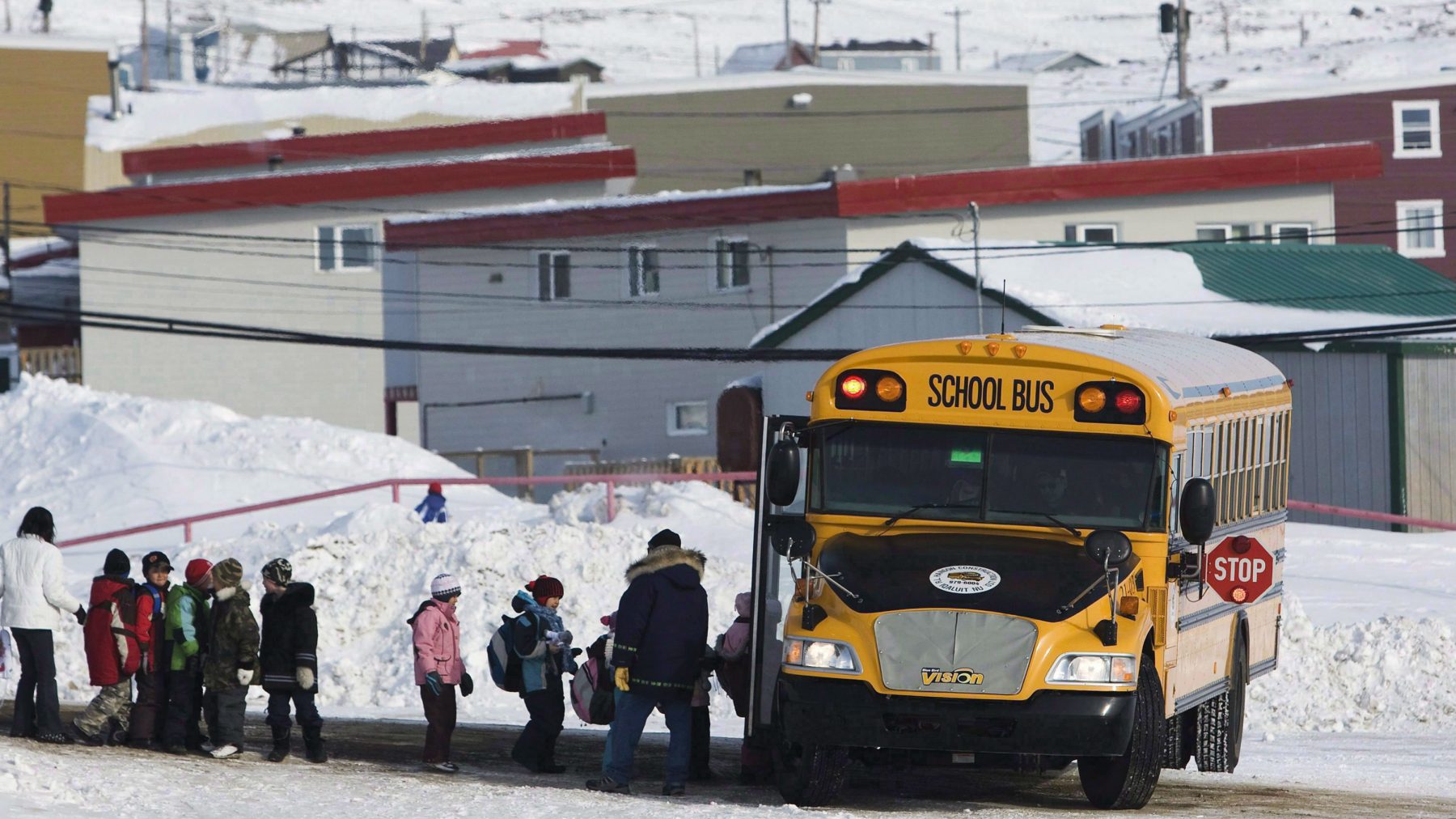Leaked report says teacher education program not sufficient in Nunavut, Arctic Canada

A leaked report by a Vancouver-based research firm concluded that the Nunavut Teacher Education Program (NTEP) was “not capable of producing a bilingual, Inuit teacher workforce,” suggesting that it must be transformed to better reflect the territory’s people.
The report, which was completed in 2017 by Directions Evidence and Policy Research Group, was published Tuesday by Nunavut News. While the territorial government received the report in October of that year, it has not been released publicly.
The report says that at the time of the review, the program was caught in a “dynamic deadlock,” explaining that high schools were not graduating enough students ready for post-secondary education.
That, in turn, meant that there were not enough students from the territory going to post-secondary, meaning that students who entered NTEP did not have the academic or language skills “that would prepare them for success.”
That, then, meant that graduates of the program “did not carry with them the subject matter knowledge, the language skills, or the pedagogical skills needed or expected of entrants into the teaching profession.”
“The programs in the schools receiving these new teachers would not improve, the school and student outcomes would not improve, and the cycle would begin over again,” the report reads.
In its conclusions, the report states that the NTEP “is primarily a variant of the teacher education programs offered by many faculties of education in Canada,” and that it must be transformed by using the territory’s culture, values, and language at its core.
Program not graduating enough students, report says
The Nunavut Teacher Education Program has existed in its current form since 2007. Offered in partnership between Nunavut Arctic College and the University of Regina, the program offers a Bachelor of Education, with the specific goal of preparing grads to deliver bilingual education in Nunavut.
The graduates of the program are in demand — grads normally have work lined up before they receive their degrees.
However, the program is not graduating enough teachers to fulfil the territory’s need for bilingual educators. In 2016, the report says that 223 frontline education employees were receiving language premiums, while the territory’s education department estimated the need at 433.
In order to make up that shortfall, the program would have to graduate approximately 250 per cent more people each year for the next five years, the report suggests. In 2015, 10 people graduated from the program, there were five grads in 2016.
The report suggests that tying entrance to high school grades provides a pool of entrants that “is neither wide nor deep,” and suggests that in order to get more Inuit in the program, it develop broader entrance criteria that recognizes and credits language fluency.
“Improving the graduation rate is essential to ensuring an adequate supply of Inuktitut speaking teachers to support the bilingual education objectives,” the report states.
The territory set out a 2019 goal to ensure bilingual education in its schools, but teacher shortages, among other factors, led it to postpone its deadline. In June, it announced that changes to the act would be phased in over the next two decades.
In April, a study commissioned by Nunavut Tunngavik Inc. stated that the territory’s education system was failing in its efforts to deliver bilingual education, saying that the lack of Inuktitut education constitutes “cultural genocide.”
The report’s final conclusion suggests that NTEP itself work toward being delivered in Inuktitut; currently, courses are primarily taught in English.
Related stories from around the North:
Canada: Canada’s Auditor General gives northern territory of Nunavut failing grade in supporting student career goals, CBC News
Finland: New climate studies program coming to schools in Finland, Yle News
Sweden: Inequality a problem in Swedish schools: UNICEF report, Radio Sweden
United States: Proposed Alaska budget could cut programs to bare minimum, school district says, Alaska Public Media


